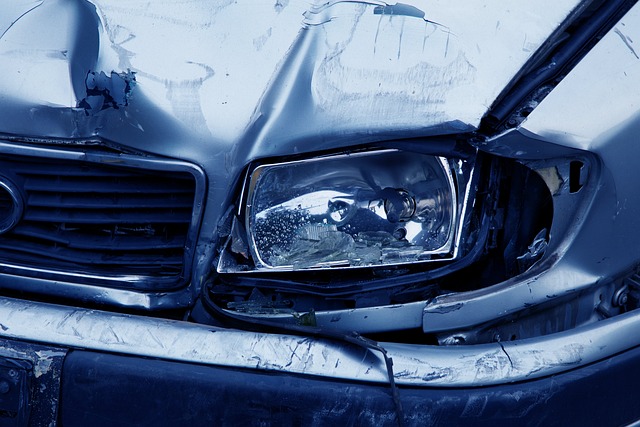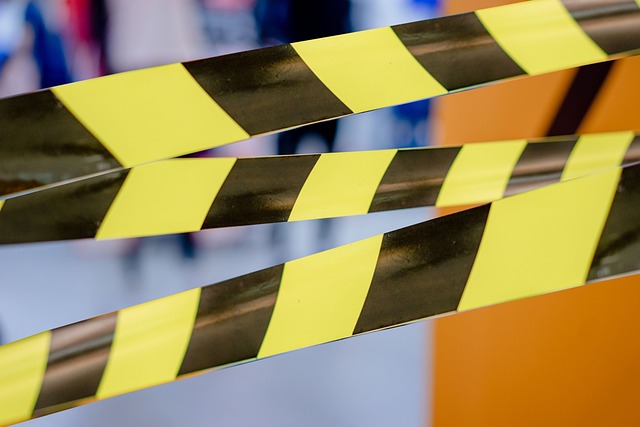Navigating the intricacies of New Jersey’s hit and run laws can be a daunting task, especially when it comes to accidents that involve no injuries. With hefty legal and financial implications, understanding your rights and responsibilities as a New Jersey driver is paramount. Whether you’re looking for legal insights or simply aiming to be a better-informed driver, this comprehensive breakdown will guide you through the legal landscape of no-injury accidents in the Garden State, providing you with clarity and next steps if you find yourself in such a situation.
What Constitutes Leaving the Scene of an Accident in New Jersey?
Leaving the scene of an accident, commonly known as a hit and run, occurs when a driver fails to stop at the scene of a vehicle collision in which they are involved. New Jersey law mandates that drivers must stop their vehicle and stay at the scene to provide specific information to the other parties involved, including their name, address, and vehicle registration number, as well as render aid if needed.
In the case of no injuries, the absence of physical harm does not excuse a driver from their legal obligation to stop and exchange information. Even a minor fender bender necessitates the proper protocol and failure to do so can result in serious consequences.
Examples of hit and run accidents range from the very minor to those causing significant property damage, all of which require adherence to New Jersey’s strict protocols. A simple scenario might involve a driver accidentally backing into a parked car in a supermarket parking lot and then leaving the scene without notifying the owner or leaving contact information. Another example could be a driver clipping a cyclist’s mirror on a narrow street and choosing not to stop. A more severe case might involve hitting a roadside mailbox or fence and deciding to flee rather than face potential consequences. In any of these situations, regardless of the absence of physical injuries, the actions (or inactions) fall under the umbrella of hit and run according to New Jersey law.
Legal Obligations: What You Must Do After a No-Injury Accident
If you’re involved in a minor accident in New Jersey where no one is injured, you must:
- Stop Immediately: Ensure the safety of all involved by finding a safe place to stop your vehicle without impeding traffic.
- Exchange Information: Offer your name, address, driver’s license number, and vehicle registration to the other driver, and request the same from them.
- Notify the Authorities: Regardless of the severity of the accident, you must inform the police. This step is crucial for legal and insurance purposes.
- Assist as Required: If there’s property damage, take reasonable steps to secure the scene, prevent further damage, and provide aid as necessary.
Penalties for Leaving the Scene of an Accident with No Injuries

The penalties for leaving the scene of a no-injury accident in New Jersey can be severe. They include:
- Fines: Hit and run fines can range from a few hundred to several thousand dollars, depending on the damage incurred.
- Jail Time: Although less common for no-injury cases, jail time is possible, especially for repeat offenders or those involved in a hit and run with additional circumstances.
- License Points: Your driving record will incur points that could lead to suspension or revocation of your driver’s license.
- Civil Liability: In addition to criminal penalties, you may be held liable in civil court for the damages resulting from the accident.
Defenses Against Hit and Run Charges
If you’re facing hit and run charges in New Jersey for a no-injury accident, several defenses may be available to you. These could include a lack of knowledge of the accident, mistaken identity, necessity, and more. An experienced attorney can review the specifics of your case to determine the most appropriate defense strategy.
Legal Best Practices and Post-Accident Checklist
It’s helpful to keep a mental checklist of what to do if you’re involved in an accident. Remember to:
- Stay Calm and Collected: Keeping a level head will ensure that you’re able to take the necessary steps without panic or confusion.
- Document the Scene: Take photographs of the accident scene, including the vehicles involved and the surrounding area. This evidence can be invaluable later on.
- Get Witness Information: If there are any witnesses, ask for their contact information. Their statements may prove crucial in the legal process.
- Notify Your Insurer: Contact your insurance company as soon as possible with the details of the accident. Failure to do so may result in a denial of coverage.
- Seek Legal Counsel: A qualified attorney can guide you through the legal maze, ensuring your rights are protected and that you understand your legal course of action.
How to beat a leaving the scene of an accident ticket nj
While the language “how to beat a leaving the scene of an accident ticket in NJ” suggests seeking a loophole or avoiding responsibility, it’s important to approach such a situation with legal integrity and understanding. If you’re charged with leaving the scene of an accident in New Jersey, the first step is to consult with a knowledgeable attorney who specializes in traffic law within the state. An experienced lawyer can evaluate your case’s specifics, including any mitigating circumstances or legal defenses that may apply.
Defenses against a leaving the scene charge might include:
- Lack of Awareness: Proving you were unaware an accident occurred. For example, if the damage was minimal and not immediately noticeable.
- Misidentification: Demonstrating that you were not the driver or that your vehicle was not involved in the accident.
- Necessity or Duress: Arguing that you left the scene due to an emergency that required immediate attention, although this defense is challenging and must be substantiated with substantial evidence.
It’s also vital to gather any supporting documentation, including photographs of the scene (if you have them), witness statements, and any relevant communication or reports. Your attorney might negotiate reduced penalties or argue for dismissal, depending on your case’s strength and the evidence’s quality.
Remember, every situation is unique, so professional legal advice is crucial in navigating the complexities of New Jersey’s traffic laws and ensuring the best possible outcome.
How many points is leaving the scene of an accident in nj
Leaving the scene of an accident in New Jersey results in significant penalties, such as points added to your driving record. For accidents involving property damage, 2 points are added, while accidents with bodily injury or death lead to 8 points. These points can raise insurance costs and potentially lead to a license suspension. Understanding the impact of these points on your record is crucial, as well as taking the necessary legal measures to lessen these repercussions.
Leaving the scene of an accident with injuries
Leaving the scene of an accident involving injuries in New Jersey is a serious offense, carrying far more severe consequences than accidents solely causing property damage. Classified as a felony under state law, this action underscores the gravity of abandoning individuals potentially in need of medical aid. If found guilty, the repercussions can be dire:
Substantial Fines: Monetary penalties for fleeing the scene of an accident with injuries can be exorbitant, potentially reaching thousands of dollars.
Incarceration: Offenders may face imprisonment, the duration of which hinges on various factors surrounding the accident, including the extent of injuries inflicted.
License Suspension: The New Jersey Motor Vehicle Commission (MVC) reserves the right to suspend or revoke driving privileges for a significant duration, impacting one’s ability to commute and hold employment.
Insurance Ramifications: Apart from legal consequences, involvement in such accidents may lead to classification as a high-risk driver by insurance providers, resulting in steep premium hikes or policy termination.
Civil Litigation: Victims retain the option to pursue civil lawsuits for damages, encompassing medical expenses, loss of income, and compensation for emotional distress.
Navigating the legal challenges after leaving the scene of an accident with injuries requires adept legal representation. An attorney specializing in New Jersey traffic law can provide counsel on the best course of action, which might involve negotiating plea deals or preparing a defense for trial, with the aim of reducing or dismissing charges based on the specifics of the case and available evidence.
Title 39 leaving scene accident
Title 39 of New Jersey’s statutes covers a range of motor vehicle rules, particularly those concerning leaving the scene of an accident. According to Title 39, individuals involved in a car crash must stop and stay at the site until certain duties are fulfilled. These responsibilities include sharing personal identification and vehicle details with the other party and law enforcement. Failure to comply may result in charges for leaving the accident scene under Title 39, with penalties varying based on the damage caused. Conviction under this law can lead to fines, points on your license, potential jail time, and license suspension. It is crucial to comprehend and follow these regulations to avoid serious legal repercussions.
Compensation for Leaving the Scene of an Accident Without Injuries
While accidents without bodily injuries might seem less severe, they still carry serious legal implications, especially when a driver leaves the scene. Interestingly, individuals found guilty of such an action may face unexpected avenues of compensation claims against them. Apart from the standard fines and penalties, the aggrieved party may seek compensation for psychological distress or property devaluation. For instance, the sudden shock and stress associated with an accident can have lingering psychological effects, warranting compensation. Additionally, the hit-and-run nature of the incident may further depreciate the vehicle’s value beyond the physical damage incurred. Thus, navigating these potential claims requires careful legal consideration to mitigate the financial and legal repercussions effectively.
5 Interesting Facts About Leaving the Scene of a No-Injury Accident in NJ
- Impact on Insurance Premiums: Even in cases of no-injury accidents in New Jersey, leaving the scene can result in a significant increase in car insurance premiums. This is due to the heightened risk assessment insurers apply to drivers with hit-and-run incidents on their record.
- Community Service as a Penalty: In certain circumstances, New Jersey courts may impose community service in addition to, or in place of, other penalties for drivers who leave the scene of an accident without reporting it, emphasizing the state’s focus on rehabilitation and responsibility.
- Legal Loophole for Late Reporting: New Jersey law allows a small window for drivers who initially leave the scene of an accident without injuries to report the incident without facing the standard penalties for a hit-and-run, provided that the report is made promptly and there’s a valid reason for the delay.
- Zero Points for Quick Action: If a driver involved in a no-injury accident in New Jersey leaves the scene but reports the incident to the police before they are contacted or investigated, they may not receive any points on their driving record, underlining the importance of self-reporting.
- Surcharge System: Beyond insurance premium hikes and traditional fines, New Jersey’s unique Driver Responsibility Assessment may impose additional yearly surcharges on drivers who accumulate points for offenses such as leaving the scene of an accident, adding a financial incentive to adhere to the law.
Conclusion
New Jersey’s laws regarding leaving the scene of an accident, even those without injuries, are designed to protect the rights and safety of all drivers on the road. By understanding the law, fulfilling your obligations, and being prepared with the right information, you can take critical steps to manage an already stressful situation. No matter how minor you think an accident might be, it’s essential to approach it with the seriousness it warrants. After all, a split-second decision on the road can have long-term ramifications. If you’ve found yourself in a situation involving a hit and run in New Jersey, consulting with a legal professional is your best course of action to ensure you’re well-prepared to address the issue effectively.



